Contributors
Bonnie Brown: Q&A with Ole Miss Retiree Dr. Thomas Meredith
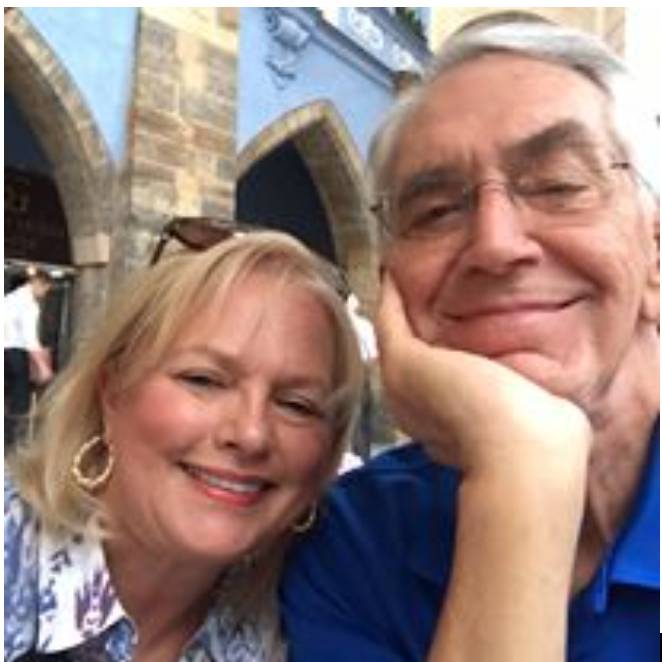
*Editor’s Note: The latest interview in the Ole Miss Retirees features is Dr. Thomas Meredith. The organization’s mission is to enable all of the university’s faculty and staff retirees to maintain and promote a close association with the university. It is the goal of the Ole Miss Faculty/Staff Retirees Association to maintain communication by providing opportunities to attend and participate in events and presentations.
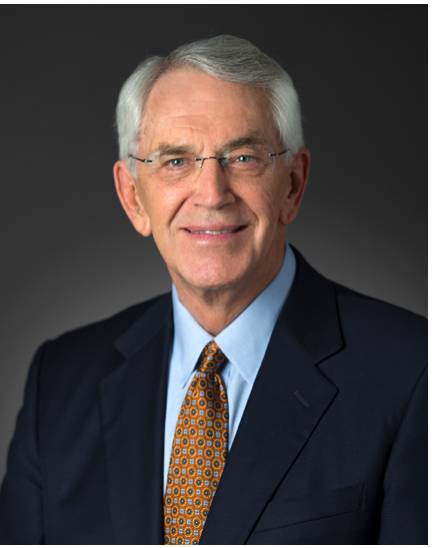
This Kentucky native made a significant impact as an educator and administrator in several southern states. Fortunately, Mississippi was one of them. And after 14 moves, we’re glad he found his way back to Mississippi. Read his story here.
Brown: You are a native of Owensboro, Kentucky. Tell us what was special about the town and your community.
Meredith: Owensboro has a lot of pride and I am proud to call it my hometown. It is on the Ohio River and a great size (60,000). It has an outstanding school system. We grew up riding our bikes everywhere safely. It is still a very safe town in which to grow up. It has the best barbeque (mutton) in the country and is home to the National Bluegrass Museum and the world’s largest Sassafras tree.
Brown: Please talk about your childhood.
Meredith: I was born at home and had loving and supportive parents. We were probably middle class. There was no extra money, but we always had enough. I liked school and played every sport that came along and enjoyed a fair amount of success. I have very fond memories of my childhood.
Brown: Tell us about your parents, siblings, and other family members.
Meredith: My parents worked for the local electric company. My mother worked in the accounting department. She completed high school and then took business courses. My father didn’t finish high school but became a foreman of a utility crew. They were both very involved as PTA presidents and Little League founders for example. They both spent a lot of time helping others. I was an only child—which I am sure you never guessed! We had a large extended family that ate Sunday lunch together most Sundays.
Brown: What is your earliest memory?
Meredith: The one-bedroom upstairs garage apartment we lived in when I was about two.
Brown: What was your favorite cartoon when you were growing up?
Meredith: Blondie and Dagwood.
Brown: Where did you go to school?
Meredith: After graduating from Owensboro High, I attended Kentucky Wesleyan College on a basketball and a baseball scholarship. I earned a master’s at Western Kentucky University while teaching high school and then I came to Ole Miss for my doctorate. I had never been to Mississippi and only knew Dr. Jerry Robbins in the School of Education. He had convinced me to come to Ole Miss. Until then, I had never lived outside of Owensboro although I had traveled in Europe twice. It was quite a leap for me. Later I attended a summer session at Harvard and then a summer session at Oxford University in England.
Brown: What was your very first job, perhaps as a teenager?
Meredith: When I was fourteen, I cleaned windows in new houses. It was just me in empty houses-pretty boring. Later I worked for the local utility company in the summers as the low man on the crew digging holes by hand for light poles. Another summer I worked for the street and sewer department. Those manholes were not my favorite places to be. My father wanted to make sure I had an incentive to go to college. As a graduate student at Ole Miss, I worked summers in Kentucky in public relations at a thoroughbred racetrack. I met some very interesting people to say the least.
Brown: Who influenced your career path?
Meredith: Dr. Douglas Sasser at Kentucky Wesleyan. He was not only intelligent (Dean of the college), but he was the epitome of the southern gentleman with a world view. He taught me to see the bigger world and the opportunities in that world. He encouraged me to go for it. He believed educating people was the noblest of professions.
Brown: I know you have had many roles in education throughout your career of 59 years. Tell us about being a high school teacher and high school principal and how those jobs would differ today.
Meredith: I taught high school seniors and was an assistant coach in basketball and baseball with my former coaches for six years. We won two baseball state championships during that time. It was the job at which I worked harder than any other job I have had throughout my career. I loved every minute of it. I usually taught five or six classes a day with about thirty students in each class. The faculty at Owensboro High School were all excellent teachers and we had a lot of fun every day. We had the freedom to teach in our classrooms without worrying about state and national test scores. Our students were successful. Teachers tell me today they wish they had more freedom and that, regretfully, discipline remains an issue. This saddens me. The principal’s job is so important. I tried to be a facilitator to make sure everything was in place and impediments were minimized so our teachers could be successful.
Brown: You had a successful tenure in higher education positions in Mississippi. Tell us about that part of your career and how it prepared you for your future leadership roles in Kentucky, Georgia, and Alabama.
Meredith: As a graduate student at Ole Miss, I taught an eight o’clock class five days a week for $1500 for the full year. In my second year, I worked in the Institutional Research office for Dr. John Phay almost full time for $3000 a year. Both jobs taught me persistence and excellence. Later, when I came back to Mississippi, I worked for the State College Board for ten years while teaching a graduate class every semester, including summers, for Mississippi State and sometimes Jackson State. I learned multi-tasking, excellence, almost every aspect of campus operations and the importance of relationships with those in power. When Robert Khayat and I joined the new Chancellor, Gerald Turner, I had a chance to utilize and add to what I had been learning at IHL. All of this helped my preparation for later roles.
Brown: You were a part of Chancellor Gerald Turner’s tenure at Ole Miss and served as Vice-Chancellor from 1984-88. What significant events/accomplishments took place during that time?
Meredith: Gerald, Robert Khayat, and I were all relatively young (38, 46 and 42) and full of fire to make a difference and help Ole Miss flourish as the flagship university for Mississippi. Gerald was a master fundraiser and still is at SMU. With Robert’s contacts and national reputation, we kicked off the first fundraiser in the history of Ole Miss. It was successful. Our energy was boundless as we worked to energize the campus and the alumni. We created new entrances to the campus, increased enrollment, and research built new relationships in Jackson and in Washington and began to build the endowment. The alumni rallied behind Gerald with their monetary support and involvement. The town-gown relationship became very positive. We outsourced our fire department to the city. We helped establish the Tourism Tax in Oxford. Ole Miss was back in the game. We expanded the football stadium with boxes and built a new baseball stadium. We created a task force on gender equity and acted on their recommendations. Leone King was the rock in our office as we all scurried about. A new Black Alumni Council was initiated under Jim Butler, Director of Alumni Affairs, with leadership from Rose Flenorl, to further involve our Black graduates. The list goes on. It was an exciting time.
Brown: Talk about your experience as President at Western Kentucky University (WKU). What challenges did that position present?
Meredith: WKU was an excellent institution, but it had not been run well financially. Their reserve was almost depleted, and little did I know that higher education was about to receive the largest cut from the state in its history. In addition, they had been through a revolving door of presidents. Confidence and morale were both very low. The board was extremely political and was finally removed by the legislature and the governor. These were tough challenges, but through teamwork and advancing financial responsibility to the departments, we turned it around. We focused on campus beautification—after all, I came from Ole Miss. We built two new residence halls and a health/recreation center. We renovated numerous buildings. We committed to competitive salaries and to diversify our faculty. We also outsourced all of our physical plant and dining services. In the mid-nineties, we brought the internet to every residence hall room and computers to every faculty desk and staff office. Dr. Charles Anderson was the architect for all of our technology success and our radio and television stations. It ended up being a very positive experience.
Brown: You left WKU to become Chancellor of the University of Alabama System. Was there a “learning curve” for you in the UA System?
Meredith: There is always a learning curve. That system had the University of Alabama at Tuscaloosa (football, law, and liberal arts), at UAB in Birmingham (medicine and health professions) and UA in Huntsville (science and engineering). Their research capacity was most impressive. We created a number of efficiencies, including joint purchasing, and improved our position with state government and in Washington. Susan and I made a lot of dear friends in Alabama.
Brown: What experience/skills did you take to your next position as Chancellor of the University System of Georgia?
Meredith: I suppose it was an understanding of the different kinds of institutions we had among our thirty-four universities and colleges which included all of the junior colleges, regional universities, doctoral research universities and a medical school plus the state’s library system. We also ran the entire technology and support system for our institutions. Within one system and with only one board, barriers from our two-year schools to our postdocs were eliminated. We were serving a quarter of a million students in credit classes. We established a training experience for existing school principals and developed a new working relationship with K-12. Much time was spent dealing with institutional foundations and an interesting governor.
Brown: What do you consider to be the highlight of your career?
Meredith: It would be being inducted into the hall of fame at my high school and at each of the universities I attended. The most satisfying highlights were at each graduation through the years. Graduation was always an emotional time to see young and older students, with so many backstories, march across for their diplomas with the biggest smiles you can imagine.
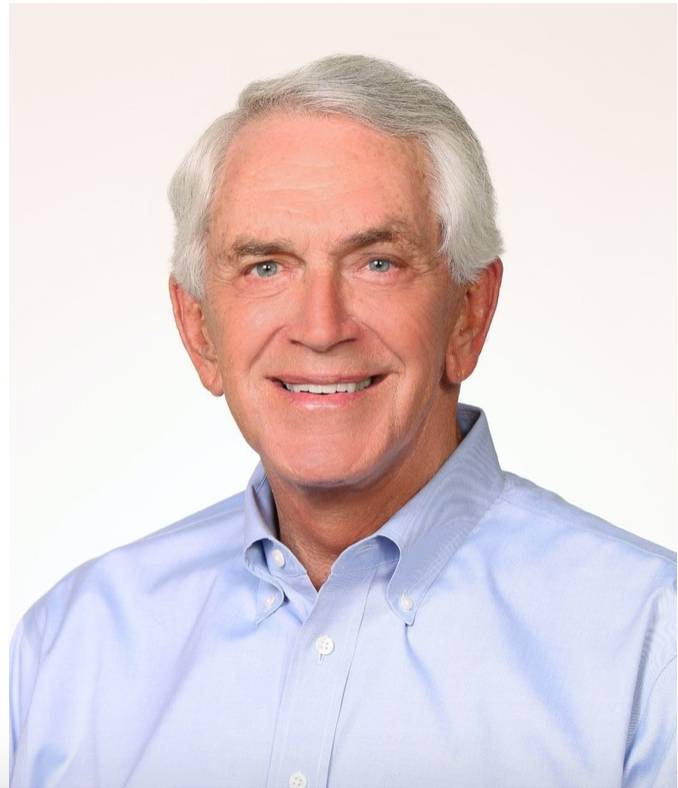
Brown: What are some skills that you think everyone should learn?
Meredith: Focused listening, communicating clearly, dreaming big, being persistent, being prepared, providing a moral compass, and treating others as you would want to be treated. If we would all work to see through the eyes of the person we are dealing with, this world would be an even better place to be.
Brown: How did you and your wife Susan meet?
Meredith: I was a graduate student and she was an undergraduate at Ole Miss. Through a mutual friend, we got together, and it just seemed right from the very beginning. I came to Ole Miss as a confirmed bachelor, but thank goodness, she changed that. She has been a wonderful partner, mother and is my best friend. When people think she is my daughter, I take it as a compliment.

Brown: Tell us what you and Susan are doing in retirement.
Meredith: Right now,we are taking “stay at home” seriously and wearing a mask every time we leave our home. Since we are best friends, we have enjoyed working on lots of projects together and we go for a therapeutic drive every couple of days. We are working on our backyard landscape and are enjoying lots of birds and their babies. We have watched countless movies, caught up on some reading, and have started organizing years of pictures. We love traveling and have been fortunate to visit quite a number of foreign countries and most US states. We are looking forward to being able to travel again safely. I worry about all of those husbands who have told their wives for years they didn’t have time to fix something—now they do!!
Brown: What are a few of your favorite travel destinations and why are they your favorites?
Meredith: Outside of the US,Italy and Provence in France keep drawing us back. We typically rent a car and drive in Europe. It gives us the flexibility to enjoy the scenery and get to know the people and their cultures. In the past few years, we find we have also enjoyed Mexico.
Brown: I know we’d like to hear about your sons Mark and Matthew and what they are doing.
Meredith: Both are Ole Miss graduates. Mark is an Emergency Room Physician at LeBonheur Children’s Hospital in Memphis. He was just named the attending emergency physician of the year. He and his wife Leslie have three little girls 11, 9, and 6. Matt is an attorney with his own firm in Dallas. He and his wife Kerry have a girl 12 and a boy 10. We are very proud of all of them. We love this grandparenting role.
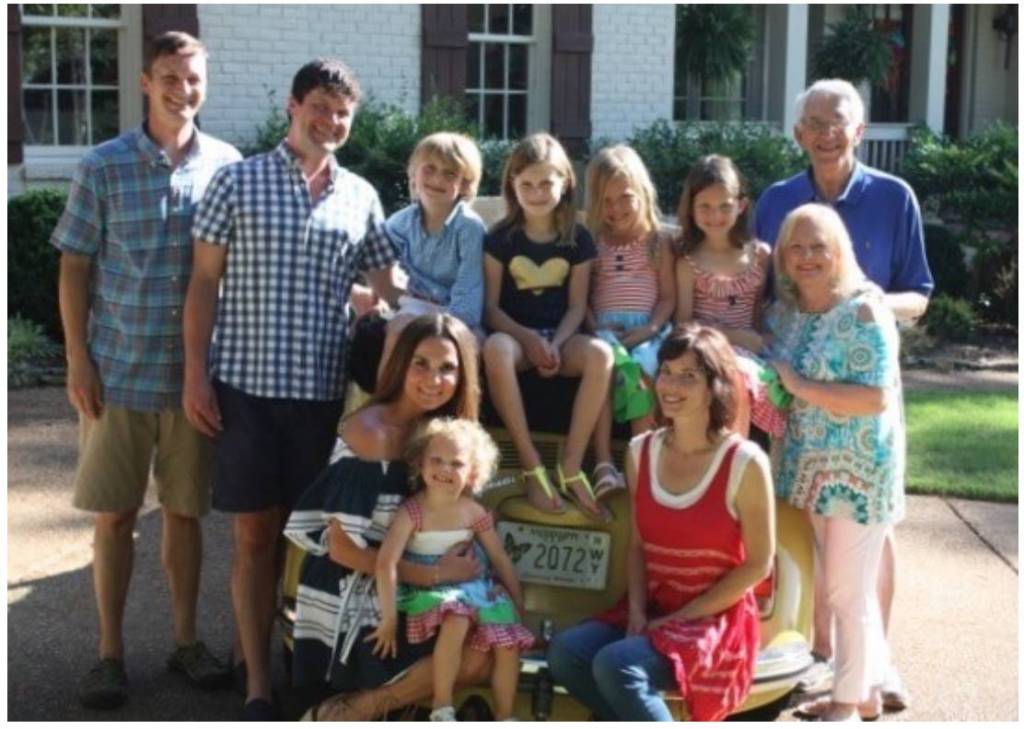
Back row: Sons Mark, Matt, and grands Charley, Mary Hayden, Ella, Zoe, with Susan, and Tom.
Brown: What’s your creative outlet?
Meredith: Fixing and organizing. No pressure. My reading is 99% professional. Hmmm, doesn’t sound very creative. However, Susan and I are avid Audible fans and have listened to close to 100 books during our travels. I am a Senior Fellow with the Association of Governing Boards in Washington. In that role, I have been in twenty-six states, several on multiple occasions, and in Puerto Rico. I work with university governing boards and presidents across the country to help them become more effective with their responsibilities and to help them solve problems during these difficult times. I guess that takes creativity.
Brown: You are a native son of Kentucky. What drew you back to Mississippi in your retirement?
Meredith: We have moved fourteen times and have lived in some great cities. We wanted this move to end our nomadic life. Susan is from Booneville and grew up as an Ole Miss Rebel. We both love Oxford and Ole Miss. We had lived here as students and as a vice chancellor. It was an easy decision. Everyone lives in Oxford or wants to!!!
Brown: What’s one small thing a person can do each day that would improve their life?
Meredith: Take a deep breath and count your blessings. It would help to commit to doing one kind thing for someone else each day.
Brown: What movie do you wish life were more like?
Meredith: All of the Hallmark movies. People are generally pleasant and kind. There is always a happy ending sealed with a little kiss.
Brown: What activity calms you and makes you feel peaceful?
Meredith: Sitting under an umbrella at the beach and also driving the 1972 yellow VW convertible we bought the first year we were married.
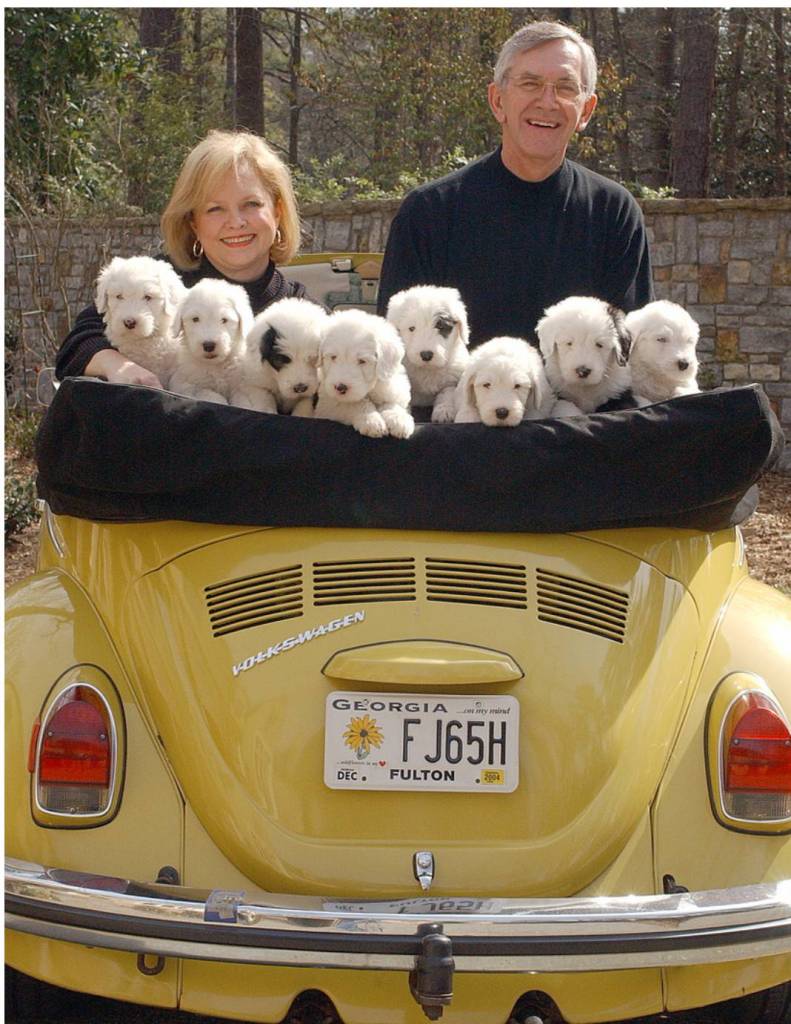
Brown: Do you have a favorite beach retreat? Where is it?
Meredith: Before we settled in Oxford, we lived for seven months at Orange Beach in Alabama. It became our favorite. However, Cabo is really good.
Brown: If there was something in your past you were able to go back and do differently, what would that be?
Meredith: Thankfully, I don’t have any regrets. In every situation, I made the best decision I could make with the information I had, and then moved on.
Brown: What advice do you wish everyone would take to heart?
Meredith: Give everyone the benefit of the doubt. We are too quick to judge these days. Treat others like you would want to be treated.
Brown: What one question can you ask someone to find out the most about them?
Meredith: “Tell me about you.”
Brown: What is the best advice you ever received?
Meredith: Listen to your conscience. If you have a question about something you are about to do, don’t do it. Also, a plaque on my desk translates 1Peter 2:12 to say, if negative things are said about you, live your life so no one will believe them.
Brown: What stories from your life are you telling your grandchildren?
Meredith: They are a little young to be interested in my life. However, they enjoy hearing about when they were babies and stories about their dads when they were their age. It is called payback for our boys!!!
Brown: What’s the nicest compliment you’ve ever received?
Meredith: A number of people have told me I am approachable. Given the positions I have been blessed to be in, I appreciate that comment. Also, I have been told I married up! That Ole Miss coed and I have been married for over 48 years.
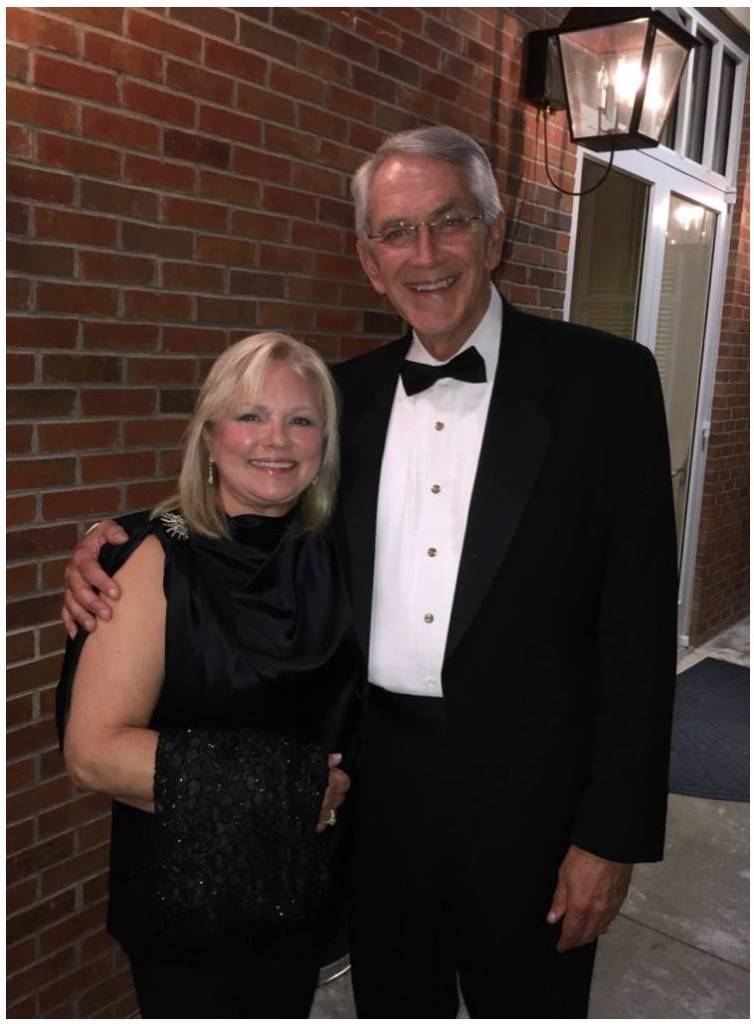
Brown: What’s the best part of your day?
Meredith: Morning on our back patio with the birds and our Australian Labradoodle Bailey.
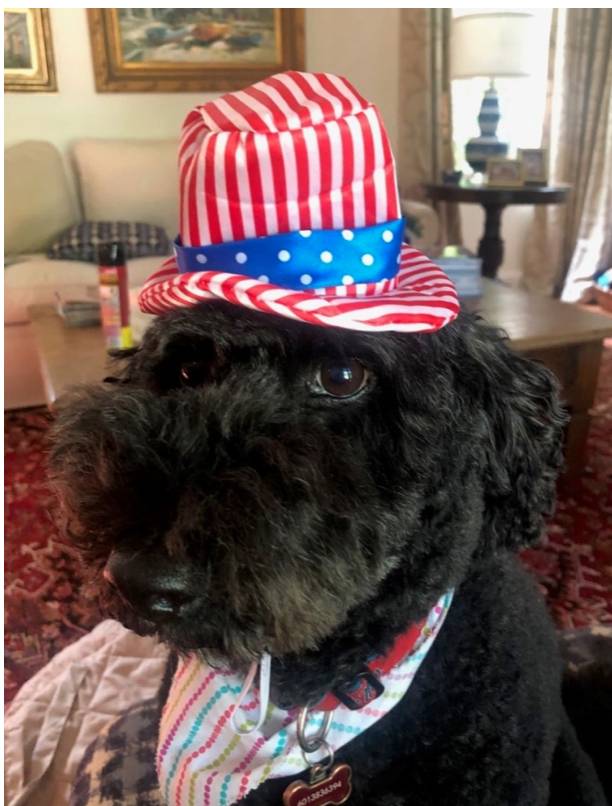
Brown: Talk about something that always cheers you up when you think about it?
Meredith: It is when I realize how blessed I am to have a loving wife, two healthy sons, five healthy grandchildren and a life worth living.
Brown: To what do you attribute the biggest successes in your life?
Meredith: The Grace ofGod, luck, being prepared and being persistent.
Brown: What are some of the events in your life that made you who you are?
Meredith: Having parents who insisted I earn a college degree and if I were going to do something, do it well. The summers filled with intense labor helped motivate me. Starting in elementary school, I was often chosen as the president or the captain. I suppose that got me started in leadership roles. Teaching high school taught me we don’t all come from the same places or with the same abilities. I saw my job as helping my students get to the finish line.
Brown: Tell us something about yourself that not many people may know.
Meredith: I enjoyall kinds of music, but I really enjoy any music that includes a banjo, a mandolin, and a fiddle. The Bluegrass legend, Bill Monroe, lived about 30 miles from my hometown.
Brown: If you had your own talk show, who would be your first 3 guests?
Meredith: They would be Jesus, of course, and then John Wooden (now deceased UCLA basketball coach) and Dr. Martin Luther King Jr.
Brown: What’s left on your bucket list?
Meredith: Susan and I have been fortunateto have traveled a lot in this country and in foreign places. We are anxious to visit more of our national parks.
Brown: To quote Katherine Meadowcroft, Cultural activist, and writer, “What one leaves behind is the quality of one’s life, the summation of the choices and actions one makes in this life, our spiritual and moral values.” What is your legacy?
Meredith: I have always loved the Chinese proverb, “We all sit beneath trees we did not plant.” I hope the result of my blessed career would be more people educated in an ever-improving educational system because we did some things right for the long term.
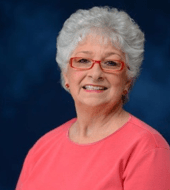
Bonnie Brown is a retired staff member of the University of Mississippi. She most recently served as Mentoring Coordinator for the Ole Miss Women’s Council for Philanthropy. For questions or comments, email her at bbrown@olemiss.edu.

















You must be logged in to post a comment Login